Nutrients to Promote Myelin Growth and Repair
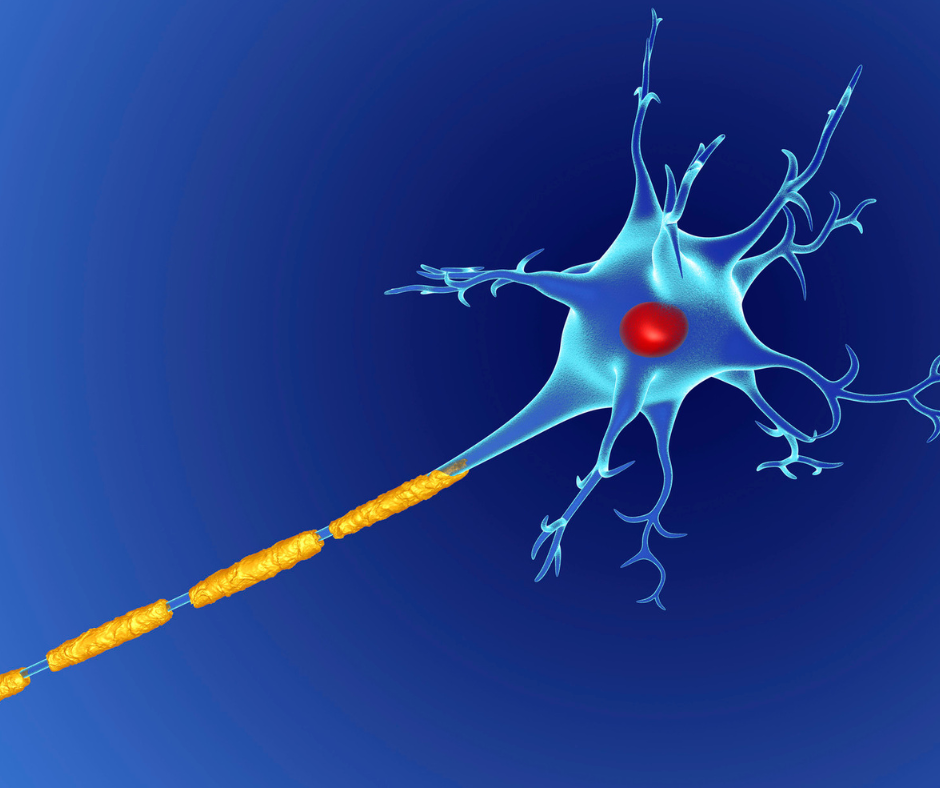
Myelin, a lipid-rich sheath surrounding nerve axons, is essential for rapid and efficient nerve impulse conduction.
- Oligodendrocytes in the Central Nervous System (CNS)
- Schwann cells in the Peripheral Nervous System (PNS)
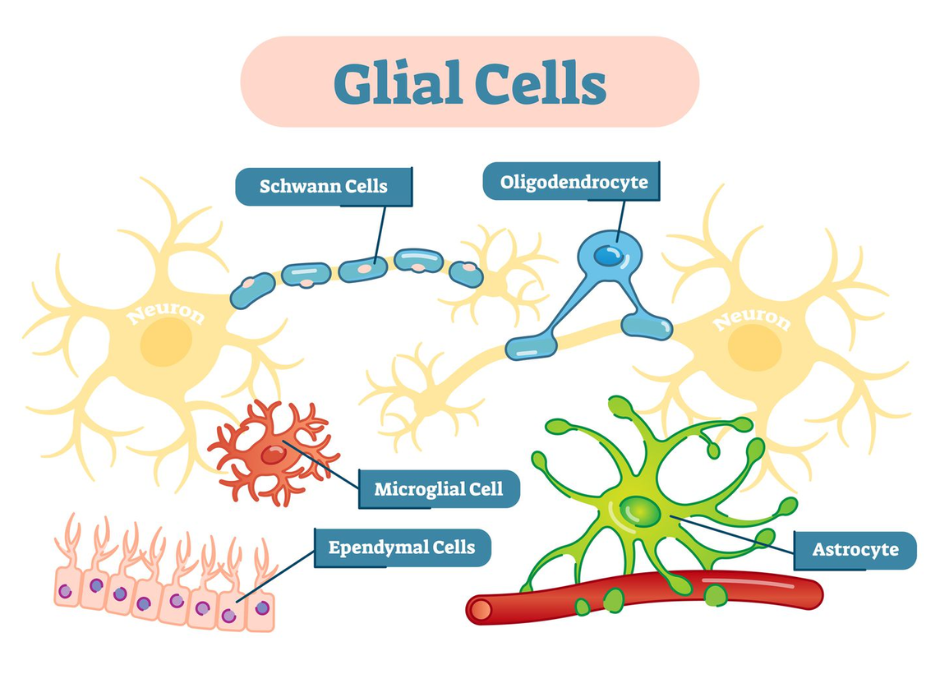
Myelin is composed predominantly of lipids, including:
- Cholesterol
- Sphingolipids (such as Sphingonyelin and Galactocerebroside)
- Phospolipids
Consequently, dietary intake and metabolic pathways related to lipid metabolism are fundamental for myelination
Furthermore, specific fatty acids, such as docosahexaenoic acid (DHA), an omega-3 fatty acid, play critical roles in myelin structure and function.
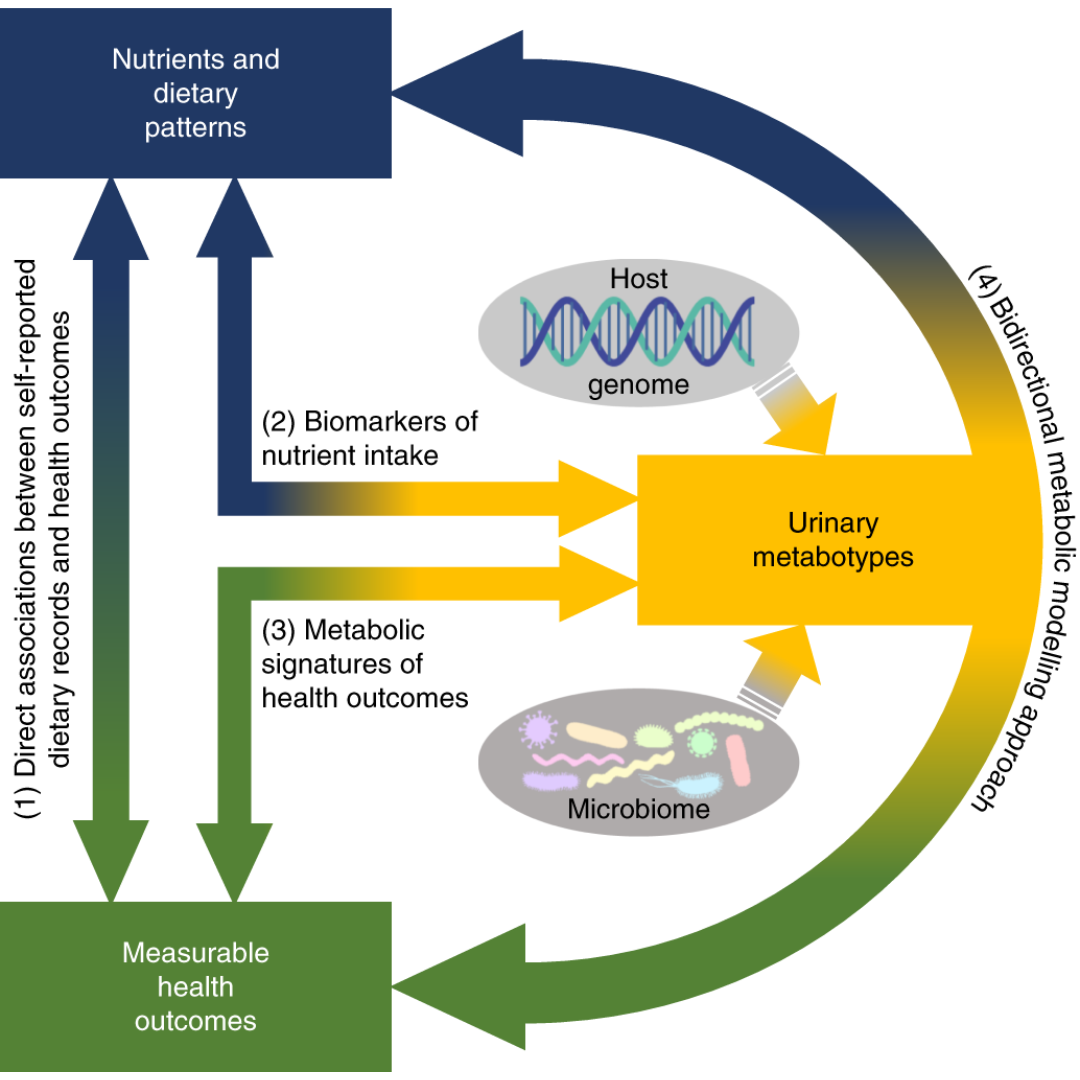
Beyond lipids, other nutrients, including certain vitamins (e.g. vitamin B12) and minerals (e.g., iron), are also essential cofactors for enzymes involved in myelin synthesis and maintenance.
This abstract summarizes the key nutritional components involved in myelination, highlighting their metabolic pathways and the potential consequences of nutritional deficiencies on myelin integrity and neurological function.
Evidence and Supporting Literature
1. Lipids (Cholesterol, Sphingolipids, Phospholipids)
- Cholesterol: Cholesterol is a major component of myelin, contributing to its structural integrity and stability. Studies have shown that cholesterol synthesis within oligodendrocytes is essential for myelination in the CNS (Saher et al., 2005, Journal of Neuroscience).
- Sphingolipids: Sphingolipids, including sphingomyelin and Galactocerebroside, are crucial for myelin membrane structure and signaling. UDP-galactose ceramide galactosyltransferase (CGT) is a key enzyme in galactocerebroside synthesis, and its activity is essential for proper myelination.
- Phospholipids: Phospholipids, such as phosphatidylcholine and phosphatidylethanolamine, are also important constituents of myelin membranes. Their synthesis and incorporation into myelin are tightly regulated during development
2. Fatty Acids (Especially DHA)
- DHA: DHA, an omega-3 fatty acid, is highly enriched in myelin and plays a critical role in its function. Studies have demonstrated that DHA deficiency can impair myelination and lead to neurological deficits 6 . DHA is incorporated into myelin phospholipids and influences membrane fluidity and protein interactions.
3. Vitamins and Minerals
- Vitamin B12: Vitamin B12 is a cofactor for enzymes involved in myelin synthesis, particularly in the formation of myelin lipids. B12 deficiency canlead to demyelination 7 and neurological problems.
- Iron: Iron is essential for the activity of several enzymes involved in myelinsynthesis and maintenance. Iron deficiency can impair oligodendrocyte maturation and myelination.
4. Metabolic Pathways
- The mevalonate pathway is crucial for cholesterol synthesis in oligodendrocytes. Disruptions in this pathway can impair myelination.
- Fatty acid synthesis and metabolism are also essential for providing the building blocks for myelin lipids. Enzymes like fatty acid synthase (FASN) play critical roles in this process.
Summary Table of Key Nutrients and Their Roles in Myelination
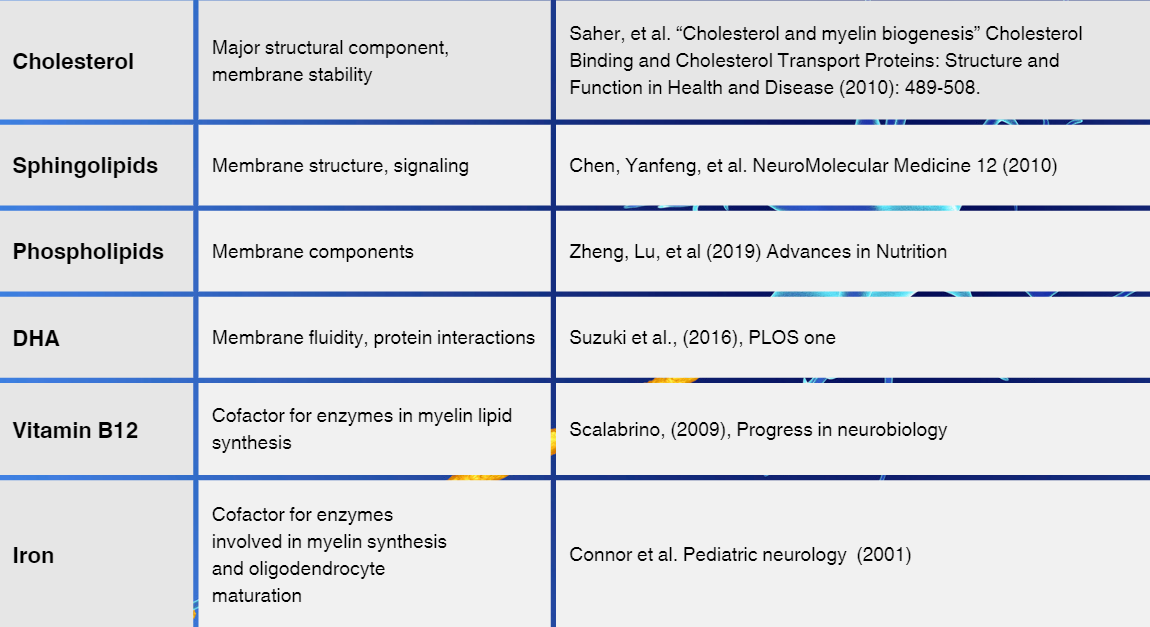
Conclusion
Proper myelination requires a complex interplay of various nutritional components, primarily lipids, fatty acids, vitamins, and minerals. Nutritional deficiencies can significantly impair myelin synthesis and maintenance, leading to neurological dysfunction. Further research is needed to fully understand the intricate metabolic pathways involved in myelination and to develop effective strategies for preventing and treating demyelinating diseases through nutritional interventions.
Which outlined the nutritional components crucial for myelin synthesis and maintenance, here are dietary recommendations that could potentially promote myelin repair (it’s important to note that while these nutrients are essential for myelin health, more research is needed to definitively establish their role in repair specifically)
Key Dietary Recommendations for Myelin Health
1. Consume Healthy Fats
Omega-3 Fatty Acids (especially DHA): Include oily fish (salmon, tuna, mackerel, sardines), less recommended are the vegan sources flaxseeds, chia seeds, and walnuts in your diet. DHA is a major structural component of myelin, and adequate intake is crucial.
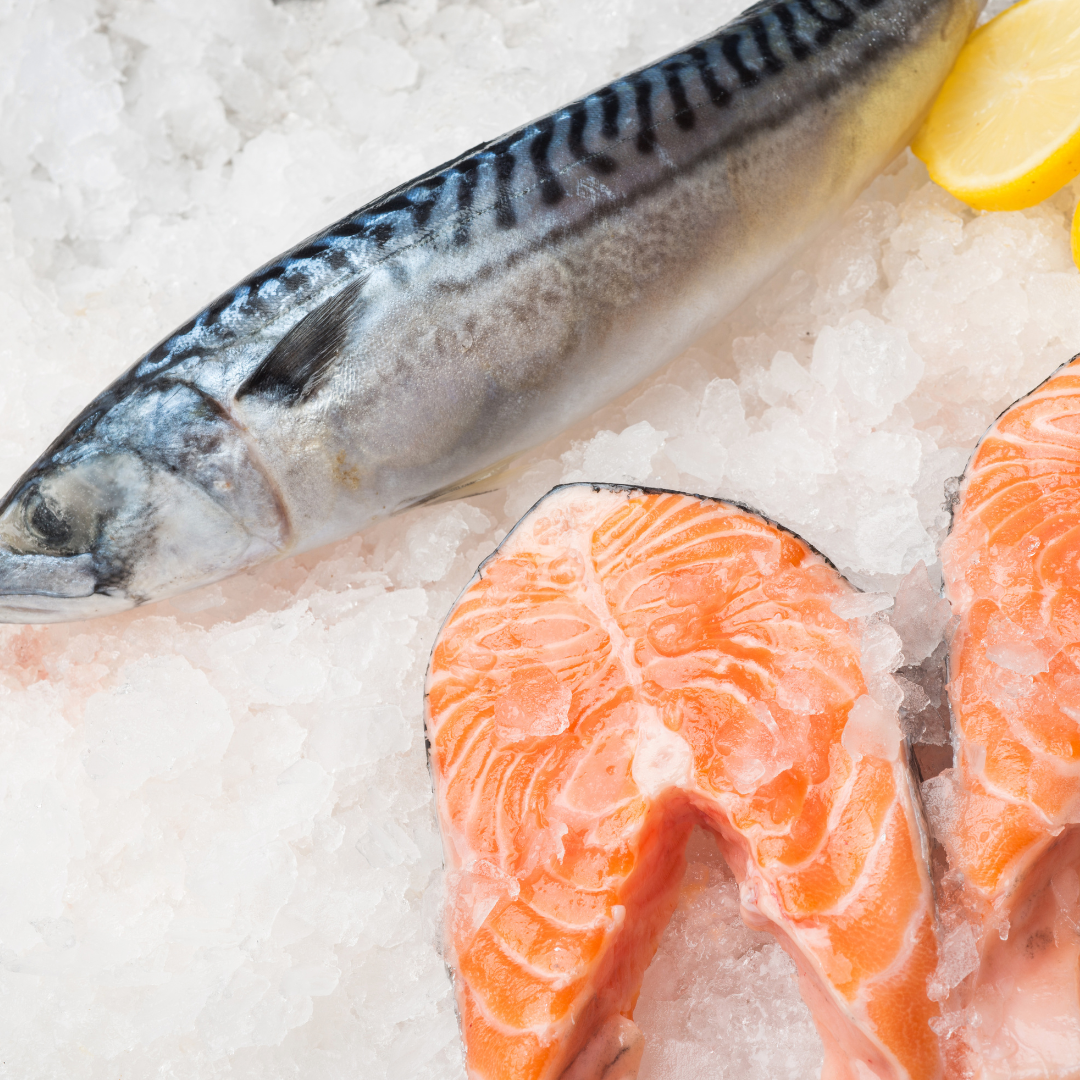
Other Healthy Fats: Don’t neglect other sources of healthy fats like avocados, olive oil, and fresh nuts. These provide essential fatty acids and contribute to overall lipid metabolism necessary for myelin production. Remember that high quality saturated fats from animal sources are essential for cholesterol.
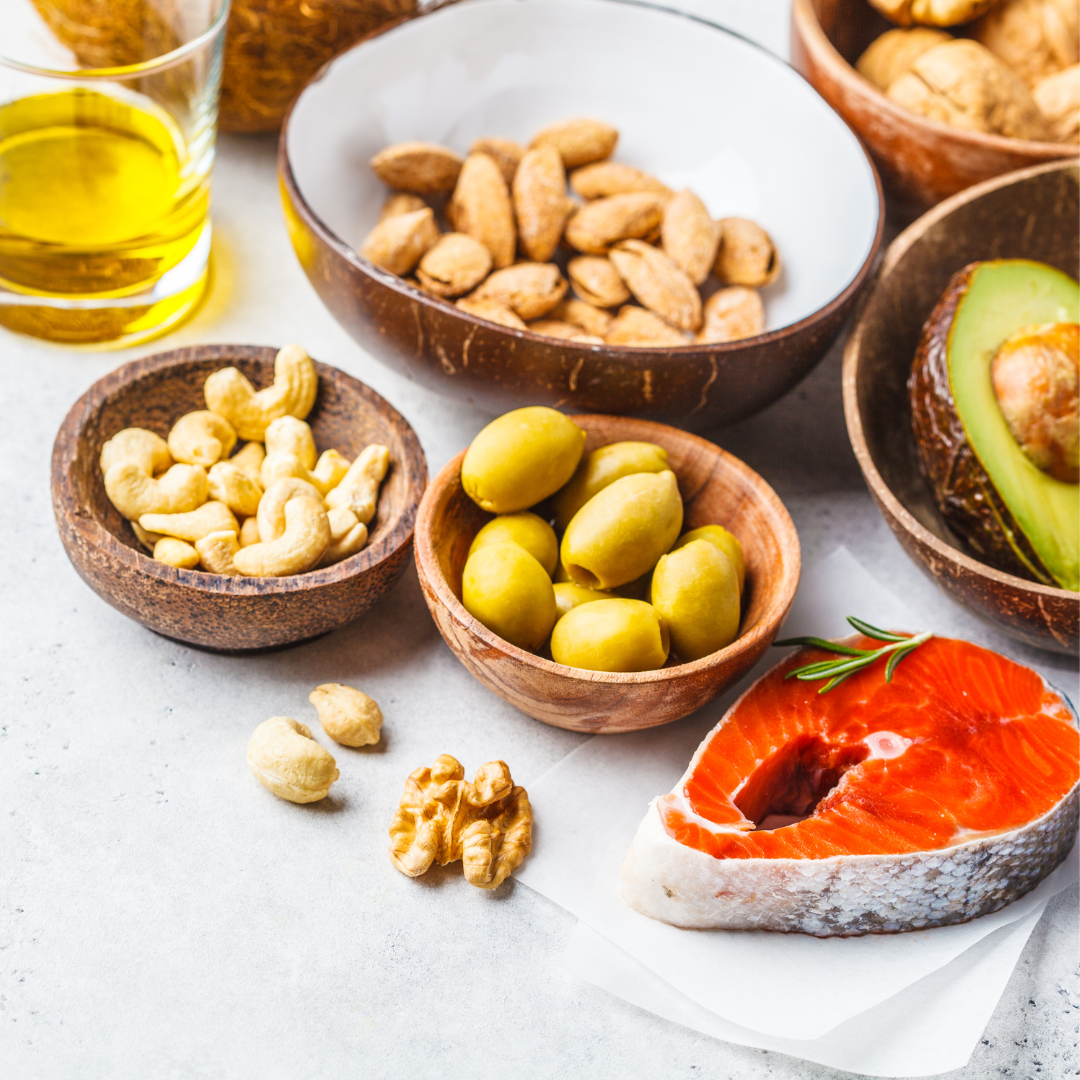
2. Ensure Adequate Cholesterol Intake (with caution)
However, it’s essential to maintain a healthy balance and consult with a healthcare provider regarding cholesterol intake, especially if you have existing cardiovascular concerns. Choose meats, eggs, and dairy in moderation. It is important to note that the body produces cholesterol and dietary cholesterol has less of an impact on serum cholesterol levels than was previously thought.
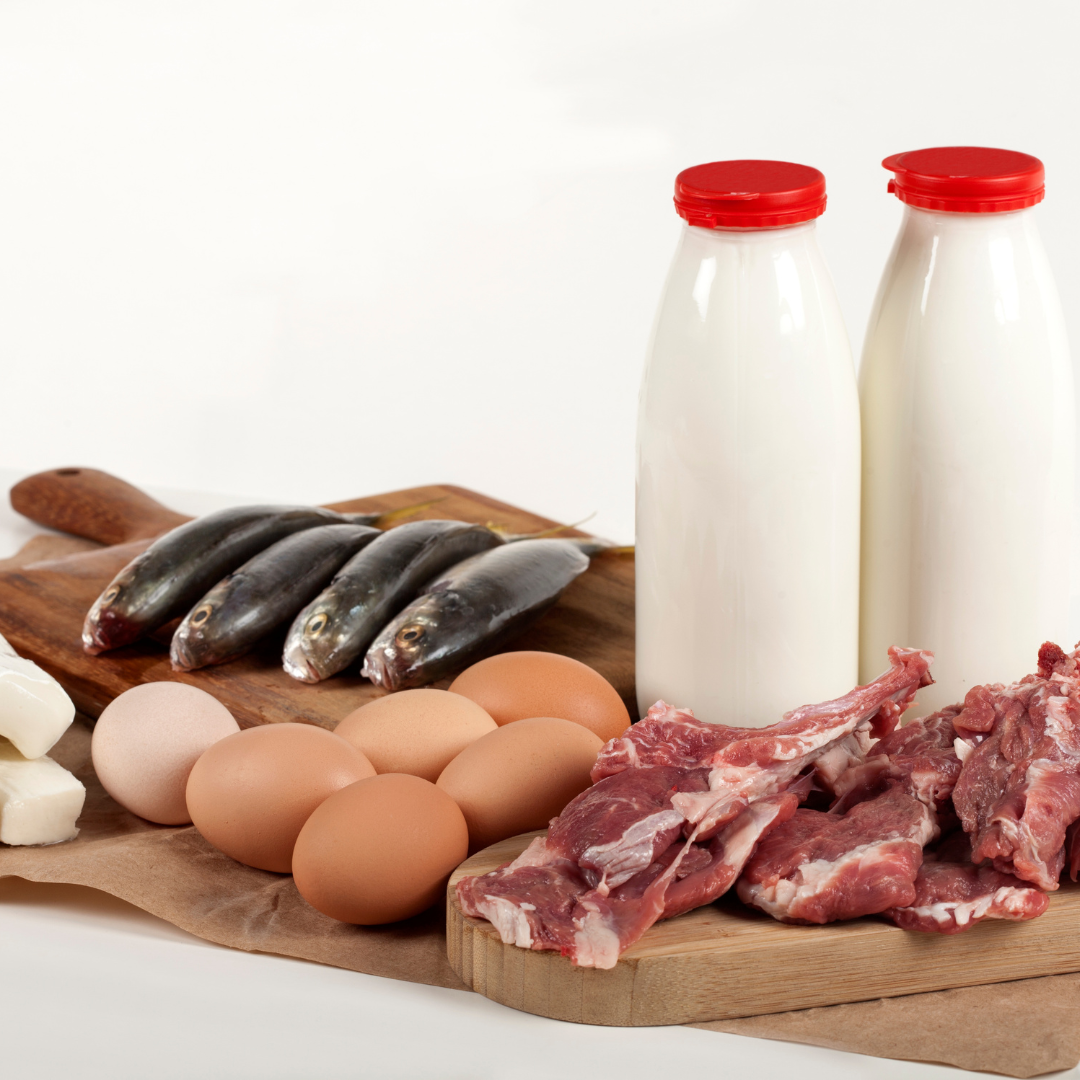
3. Prioritize Vitamin B12-Rich Foods
Include animal products like meat, poultry, fish, eggs, and dairy in your diet, as these are natural sources of vitamin B12. If you are vegetarian or vegan, ensure you supplement with B12, as plant-based foods do not naturally contain any amounts of B12.
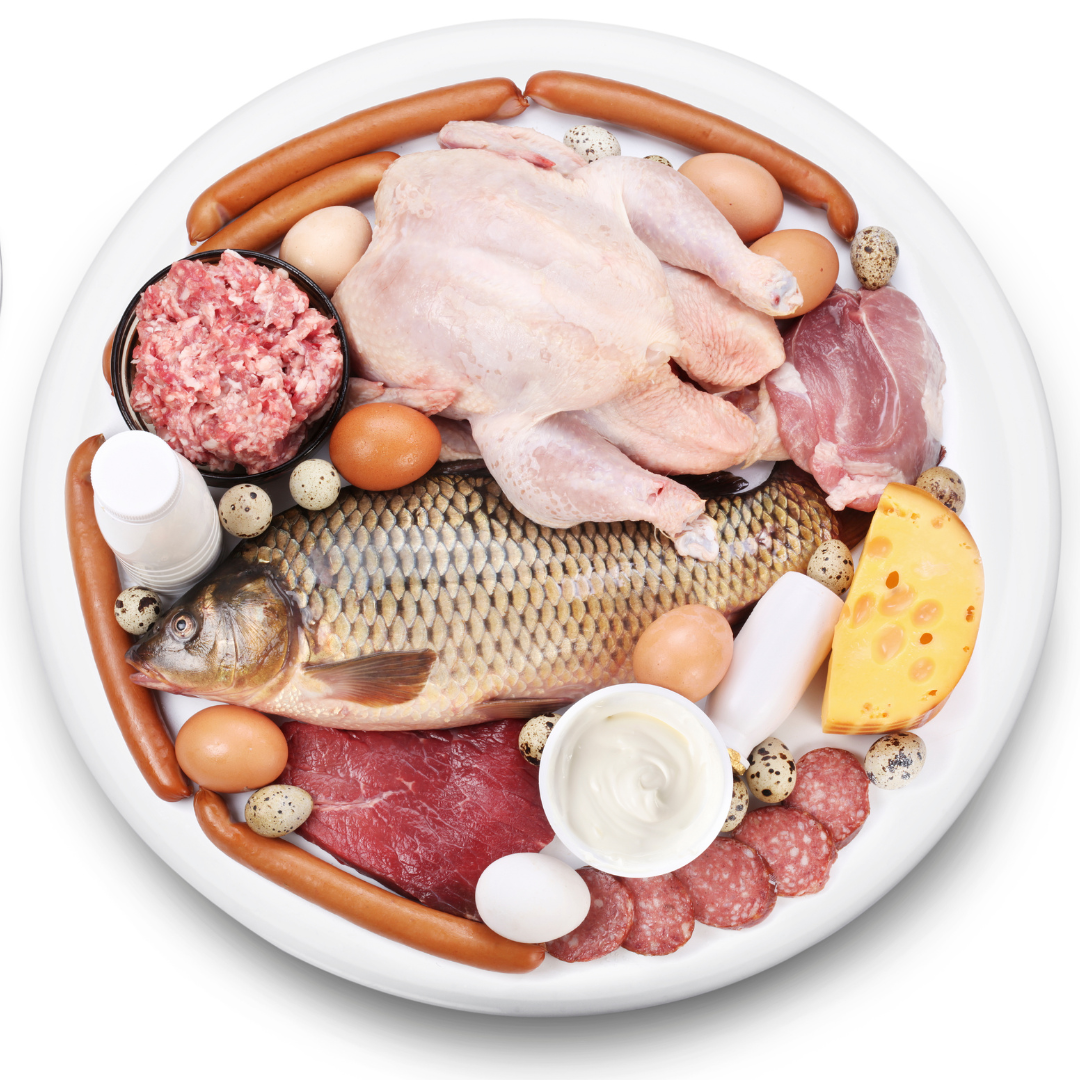
4. Consume Iron-Rich Foods
Include red meat, poultry, fish, beans, lentils, and fortified cereals in your diet. Iron is crucial for myelin production. Consider pairing iron-rich foods with vitamin C-rich foods (citrus fruits, bell peppers) to enhance iron absorption.

5. Focus on a Balanced Diet Rich in Vitamins and Minerals
A varied diet rich in fruits, vegetables, whole grains, and lean protein will provide the necessary micronutrients that act as cofactors in myelin-related metabolic pathways.

Specific Food Examples
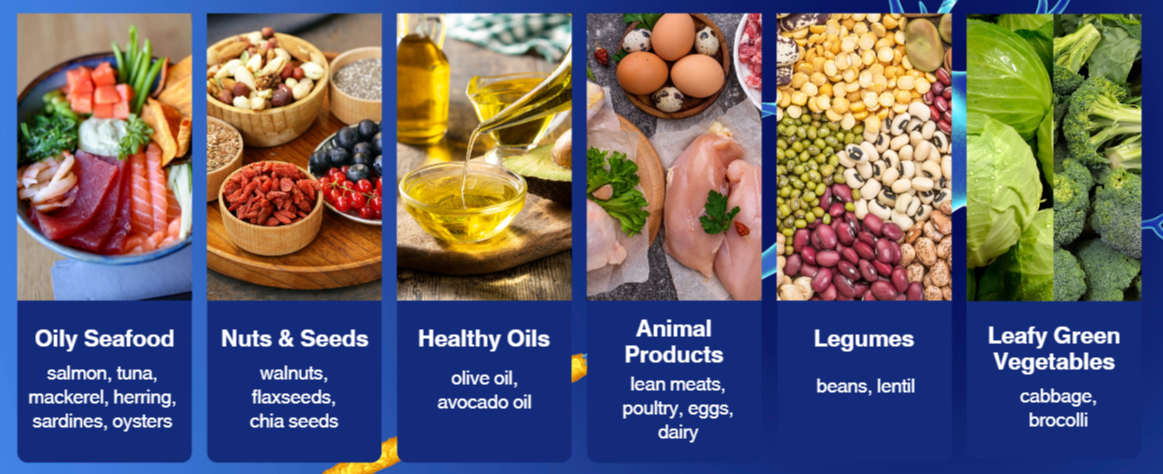
- Oily Seafood – salmon, tuna, mackerel, herring, sardines, oysters
- Nuts & Seeds – walnuts, flaxseeds, chia seeds
- Healthy Oils – olive oil, avocado oil
- Animal Products – lean meats, poultry, eggs, dairy
- Legumes– beans, lentil
- Leafy Green Vegetables – cabbage, brocolli
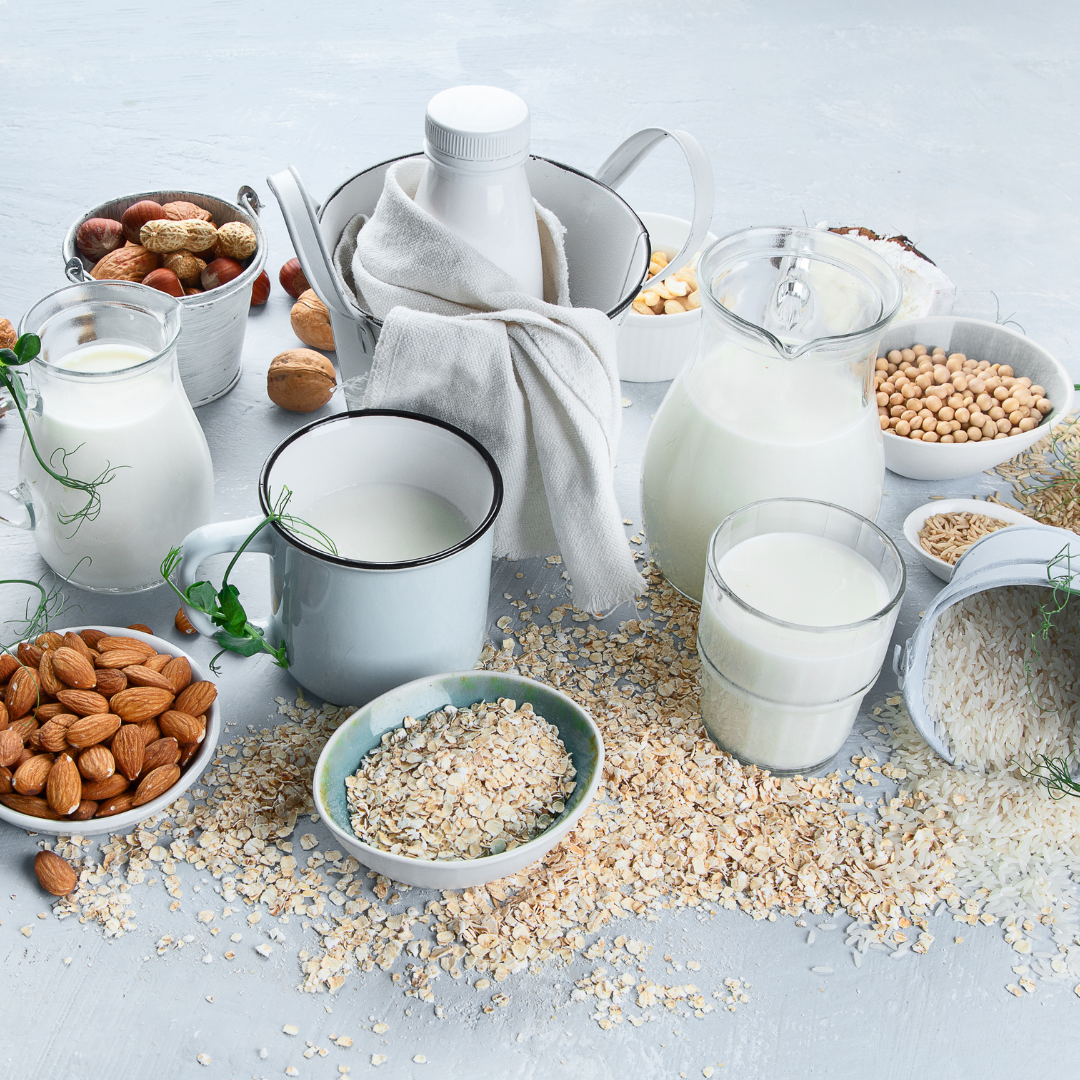
Fortified Foods
Some cereals and plant-based milk alternatives are fortified with vitamins and minerals. Modified food sources are to be considered secondary to live wholefoods.
Important Considerations
Consult a Healthcare Professional or Registered Dietitian
Before making significant dietary changes, especially if you have a diagnosed neurological condition or other health concerns, consult with a healthcare professional or registered dietitian. They can provide personalized advice based on your individual needs and medical history.
Address Underlying Conditions
If there are underlying conditions affecting nutrient absorption or metabolism (e.g., celiac disease, inflammatory bowel disease), these need to be addressed for optimal nutrient utilization.
Supplementation
In some cases, supplementation may be necessary, especially for individuals with specific deficiencies or dietary restrictions (e.g., vegans needing B12). However, it’s best to obtain nutrients from whole foods whenever possible. Always consult with a healthcare professional before starting any new supplements.
Focus on Overall Lifestyle
Dietary changes should be part of a holistic approach that includes regular exercise, stress management, and adequate sleep.
Limitations
While these dietary recommendations are based on the current understanding of myelin biology, it’s important to recognize that research on myelin repair through diet is ongoing. These recommendations are primarily focused on providing the necessary building blocks for myelin synthesis and maintenance, which may indirectly support repair processes. More research is needed to determine the specific dietary interventions that can effectively promote myelin regeneration in humans.
This information is for educational purposes only and should not be considered medical advice. Always consult with a qualified healthcare professional for any health concerns or before making any decisions related to your health or treatment.

